Coronavirus: How the Lang Whang Wombles became lockdown litter pickers
- Published
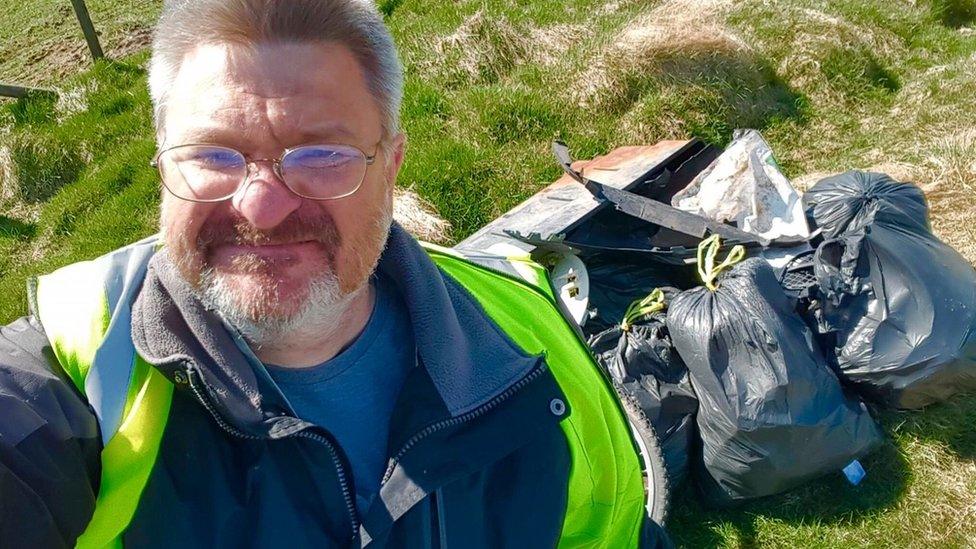
Paul Osborn started picking up litter while doing his daily exercise
When Paul Osborn moved to a cottage on a historic Scottish road just before the lockdown, he could not believe the amount of litter he found on the route.
Rubbish had built up over decades along the grassy verges and laybys of the A70 from Edinburgh to Ayr, which is known locally as the Lang Whang.
So the 52-year-old started arming himself with a litter picker when he left his home in Kirknewton, West Lothian, for his daily exercise.
He said: "Often when you have an outsider's view you have a different perspective and it was obvious to me immediately how much litter there was blighting this beautiful part of the countryside.
"Under the lockdown I could litter pick in a socially distancing way without breaking any rules."
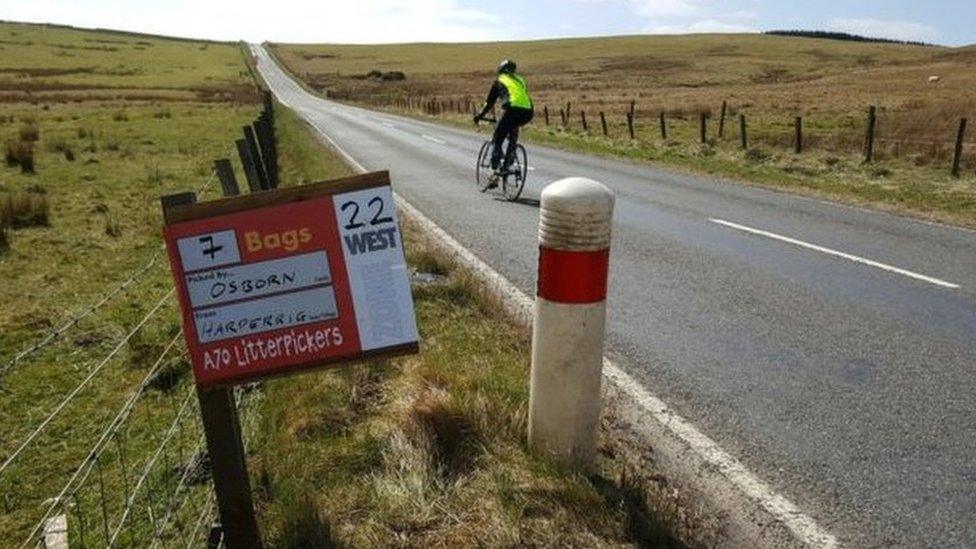
Signs mark the zones every 1,000ft
The management consultant - who had lived in Seattle for 20 years - was soon joined in the clean-up by his wife Teresa.
Local support then started to grow, so they named themselves the Lang Whang Wombles and started up a Facebook page to seek more help.
"The idea is to create a self-sustaining structure once we have cleared the road, where people opt in and take ownership of the litter," he said.
Part of the route has been divided up into 300m zones where local residents can clear their own area.
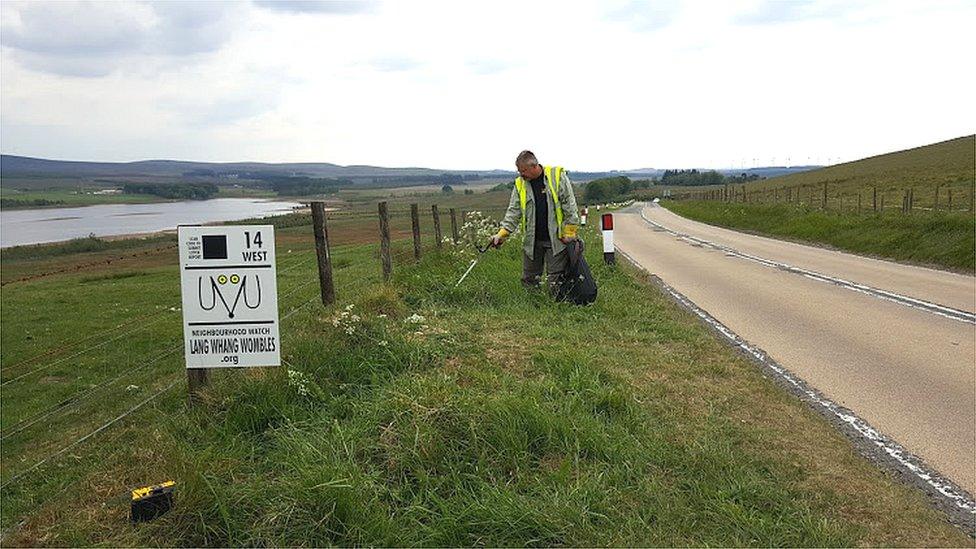
Paul Osborn founded the Lang Whang Wombles in a bid to clear the A70 of rubbish
Paul, an Agile coach, has made signs along the route in a bid to encourage others to get involved.
He said: "Litter picking can get really addictive. There is enormous soul satisfaction in litter picking as you turn a horrible mess into something nice again.
"The idea of the zones is that people feel a sense of responsibility to keep their own area clear. They take ownership of their local bit of road.
"I'm creating a chain of ownership from shore to shore, from east coast to west coast."

The history of the Lang Whang
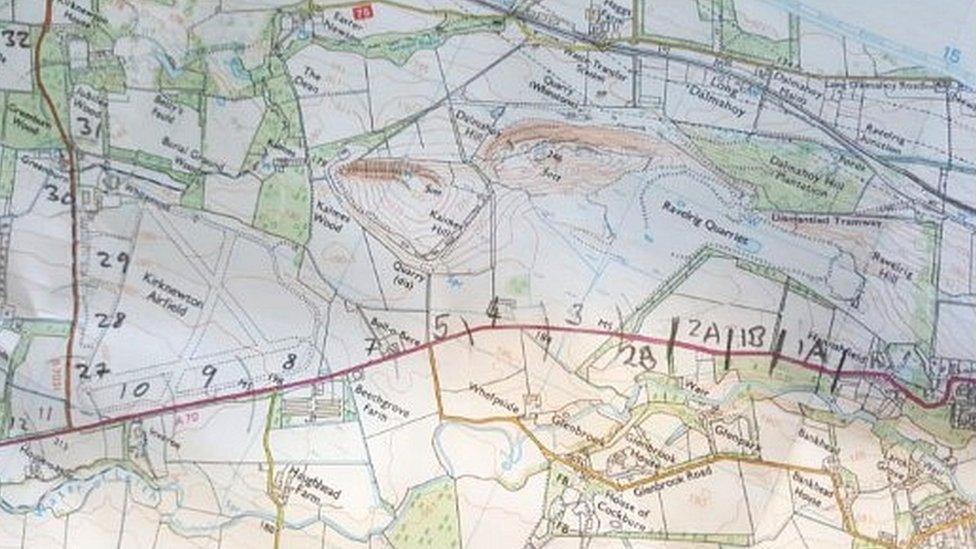
The road has been sectioned off into diferent zones
The A70 is known locally as the Lang Whang, which is Scots for a long leather bootlace.
The tales from the road's history are said to involve national bard Robert Burns, body snatchers Burke and Hare, and UFO sightings.
It was said that Burns had rested at the Wee Bush Inn in Carnwath after a day of walking along the route. He apparently summed up his exhaustion by daubing the words "Lang Whang, Lang Whang, Lang bloody Whang" on the inn's window.
Burke and Hare - who carried out a series of murders in the early 19th Century, then sold the bodies for anatomical research - used the road to transport bodies to Edinburgh Medical College.
In 1992, two Scottish men said they had been abducted by a UFO while driving on the A70 from Edinburgh to Tarbrax.

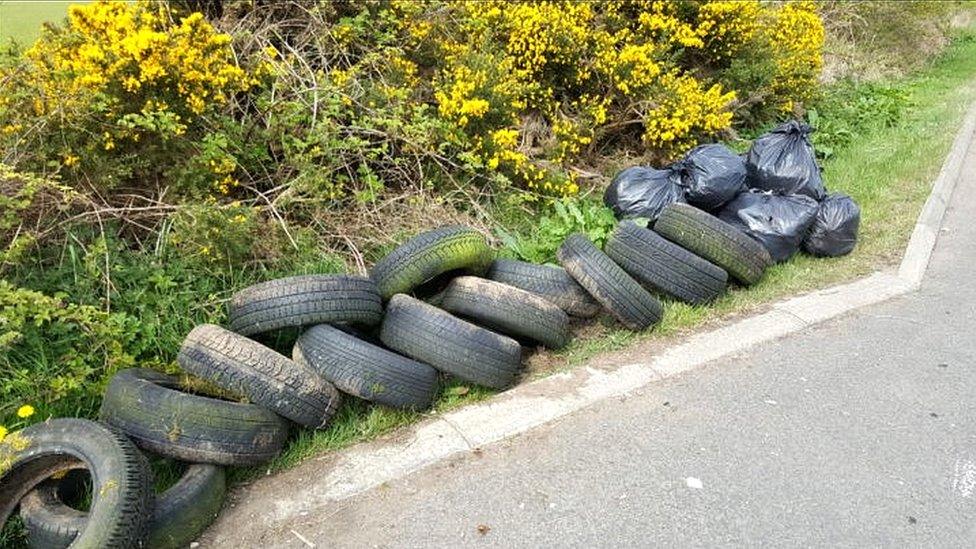
Tyres and bags of collected rubbish
So far 52 people have joined the Wombles group, with about 20 active members.
They have collected 270 bags of rubbish and more than 30 tyres, and have alerted the local council to nine fly-tipping locations.
Paul, who is originally from the Midlands, said: "We could assemble two cars with all the parts we have found from the wreckage left from car accidents.
"We have found a lot of litter buried under the grass and a lot of rubbish has built up over the decades.
"We found a lot of Strongbow cans dating between five and 15 years at the weekend."
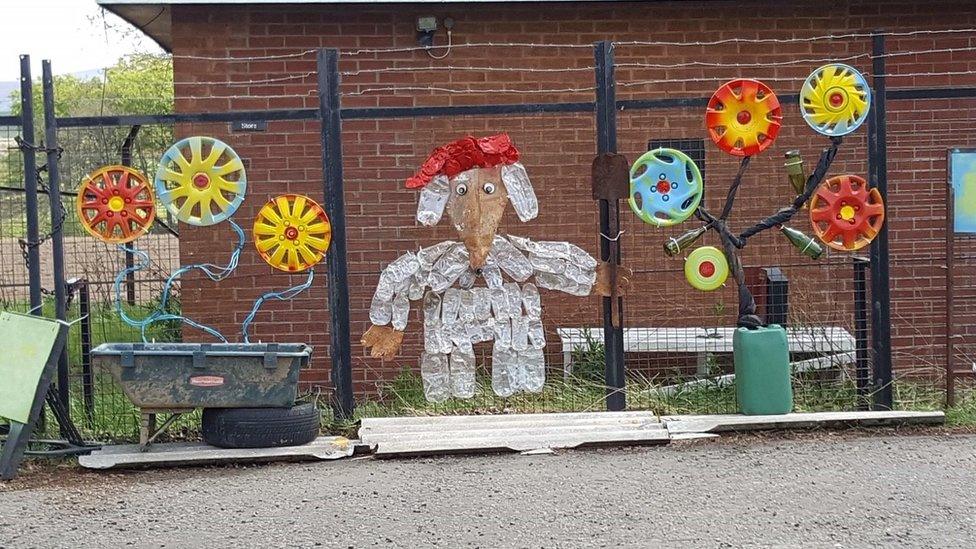
The volunteers had been storing the rubbish in their gardens until council recycling facilities reopened on Monday.
They have also built a Womble artwork at the side of the road from litter and painted hub caps.
Paul said they were looking for more people to join them along the route.
He said: "We don't ask or create expectation. They can do as much or as little as they like."

RISK AT WORK: How exposed is your job?
SCHOOLS: When will children be returning?
EXERCISE: What are the guidelines on getting out?
THE R NUMBER: What it means and why it matters
RECOVERY: How long does it take to get better?
